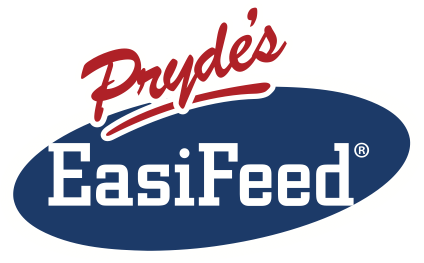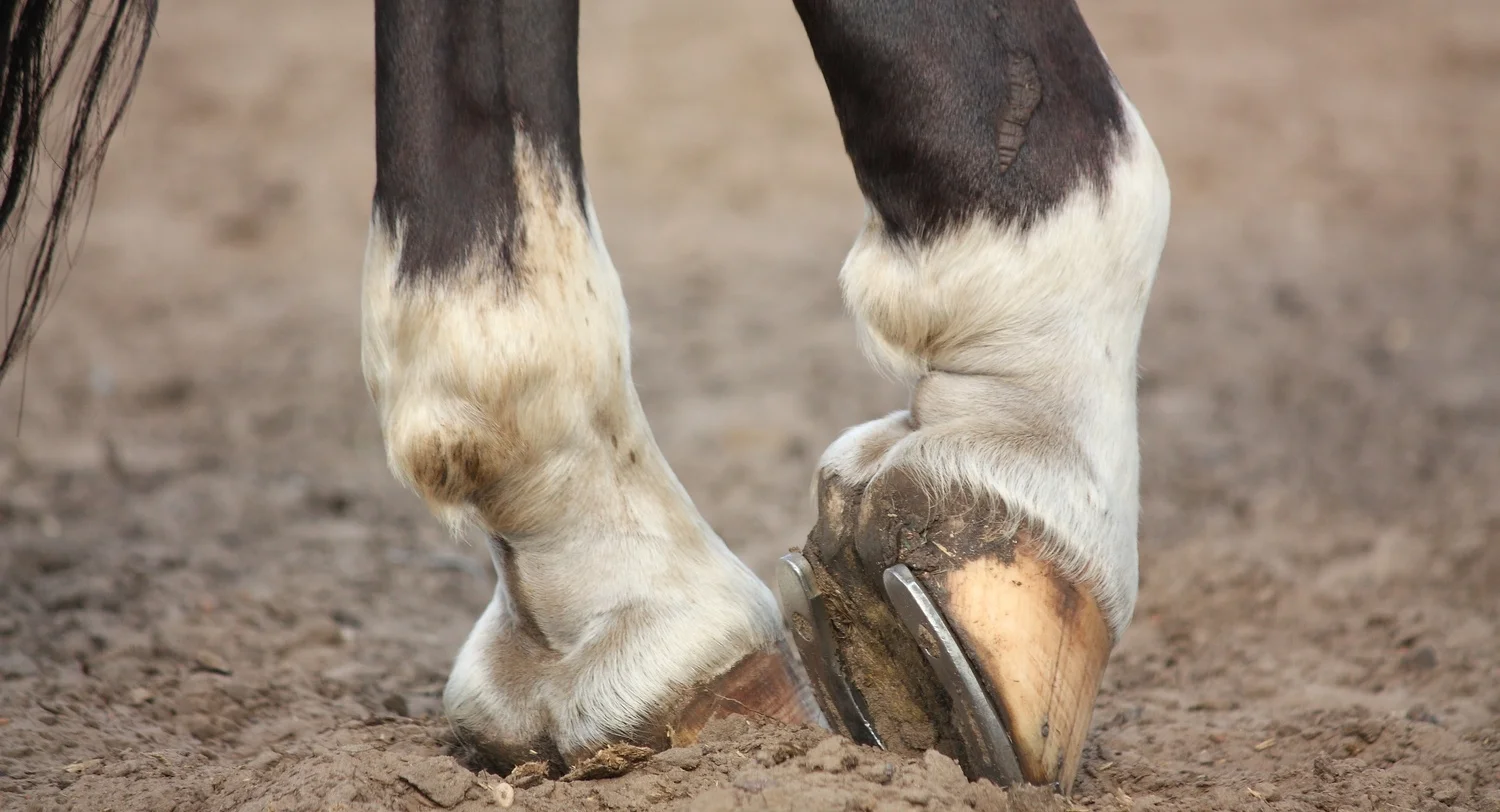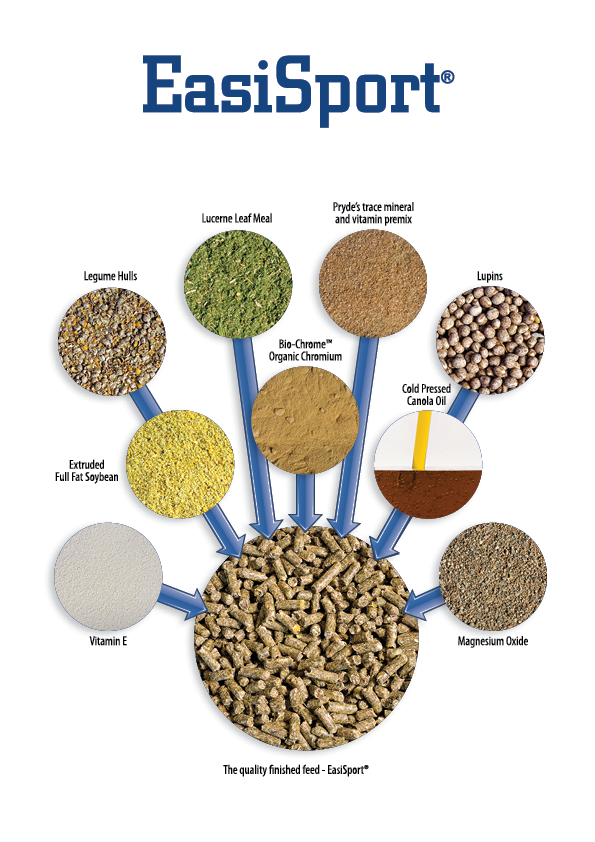Dr Nerida Richards
The old adage ‘no hoof, no horse’ couldn’t be truer when it comes to a broodmare. While she doesn’t need to perform athletically any more, she does need to be able to support herself and the additional weight of her growing foetus during pregnancy and then have the ability to run with (or after) her foal and spend large amounts of time grazing to meet her enormous energy requirements during lactation. While hoof problems for mares aren’t necessarily a show stopper, they do cause pain and discomfort that is not good for her welfare and may also make her less willing to move about and graze as normal to meet her own requirements and provide for her foal. On top of that, mares with problem hooves become expensive to manage.
While expert hoof care from a trained and experienced farrier is essential for maintaining healthy hooves, this article looks at what can be done nutritionally to assist with improving or maintaining sound hooves in your broodmares.
High quality protein
The outer wall of a horse’s hoof is comprised mainly of keratin, an extremely durable material made from protein. While there are many amino acids in keratin, it is dominated by cystine, a non-essential amino acid that can be made by the horse in its body. Cystine is created when two cysteine amino acids are bonded together. Cysteine is another non-essential amino acid. However, it is formed in the body from methionine, which is an essential amino acid and must be supplied in the diet. Methionine is considered the second most limiting amino acid in horse diets and a deficiency of this amino acid can negatively impact hoof quality by limiting the amount of cysteine and consequently the amount of cystine available for the growth of keratin.
Because broodmares have elevated requirements for protein and particularly essential amino acids to support foetal growth and milk production, making sure their diet supplies enough high quality protein to meet these needs is essential if they are to be able to support their foal and maintain the health and integrity of their own body including their hooves.
Healthy Hindgut
Because of its role in cell proliferation, the water soluble B-vitamin biotin is essential for the growth of healthy hooves. Enough biotin to meet a horse’s requirements is produced by bacteria in the hindgut of healthy horses. However, if diets are fed that are too low in forage or if the hindgut environment is disturbed and particularly if uncooked grains are fed and allowed to ferment in the hindgut, the production of biotin may be compromised, in turn affecting hoof growth.
Because lactating mares do have very high energy requirements, it is easy to get carried away with feeding large amounts of grain based concentrate feeds and forget about the forage component of the diet. As a rule, mates should have free access to as much forage as they can eat. If you are hand feeding hay to mares, feed an absolute minimum of 1 kg of hay per 100 kg of bodyweight per mare per day. Feeding less than this will limit the amount of fermentable fibre the hindgut bacteria can access to produce biotin.
In addition, don’t feed more than 1 kg of concentrate/grain based feed per 100 kg of body weight per day. Feeding more than this will limit the amount of pasture or hay your mares will willingly go out and eat. And perhaps more importantly, make sure the grains you are feeding are cooked. More than 70% of the starch from uncooked corn and barley will travel undigested to the hindgut where it will be rapidly fermented, causing acidosis and disrupting biotin production and this is something you should avoid at all costs.
Balanced minerals and vitamins
Zinc tends to take the spotlight when hoof health is discussed, and while it is very important, supplementing with zinc alone won’t assist with hoof quality if there are other more severe deficiencies in the diet. Feeding too much zinc can also cause a secondary copper deficiency, which, instead of making hoof quality better, will only serve to make it worse. Nearly all pastures contain levels of zinc and copper that are too low to support the needs of a breeding mare and over time if left Unsupplemented for all or even part of the breeding cycle, hoof growth and quality may start to suffer.
Healthy hooves rely on a balanced diet, so when considering hoof quality, be sure to make sure all of your mares’ requirements for minerals and vitamins are met. If additional zinc is fed, be sure to also provide additional copper to keep the zinc to copper ratio in balance.
When should biotin be used
Several studies now have shown that biotin supplementation can improve hoof growth and hoof quality. But a biotin supplement shouldn’t be the first thing you reach for when trying to solve a hoof quality problem. Adding biotin to a diet that is mineral deficient or contains poor quality protein with inadequate levels of essential amino acids to support hoof growth is not going to work as extra biotin simply can’t compensate for other kinds of deficiencies.
However, if you have your mares on a well balanced diet that does contain high quality protein and is meeting all requirements for vitamins and minerals and you still aren’t happy with hoof quality, adding additional biotin to the diet is worth a shot to see if it will help. The recommended ‘therapeutic’ amount of biotin to feed for improved hoof growth is 20 mg/day.
Laminitic mares
Laminitis can develop in breeding mares for several reasons, some may be dietary related while others like cases of retained placenta aren’t. Regardless of the cause of laminitis, it is always a good idea to feed these mares in a way that avoids any chance of diet related laminitis occurring. Laminitic mares should be maintained on low starch, low sugar diets. Feeding low starch, low sugar diets removes the risk of grain fermentation in the hindgut and reduces the insulin load placed on a mare following feeding , both of which may trigger laminitis in susceptible mares. Energy in these diets can be provided by high energy fibres and oil.
Mares prone to laminitis should also be kept in moderate, verging on the side of light condition (condition score 5 on the Henneke 1 to 9 scale) to maintain a good level of insulin sensitivity and reduce physical pressure on their already fragile hoof structures.
Perhaps most importantly, laminitic mares should not be kept on low quality rations. They, more than any other mare need all the essential amino acids, vitamins and minerals they can get to help them repair their damaged hoof structures.
Healthy Mare, Healthy Hooves
There aren’t any tricks to maintaining quality hooves in broodmares. All that is required is a well balanced and high quality diet that meets requirements for amino acids, vitamins and minerals and provides plenty of fibre for hindgut fermentation and the natural production of biotin. All of these nutrients are required for good fertility and the production of sound, healthy foals, so in feeding mares to breed well developed and healthy foals you should be meeting all the goals for healthy hooves. However, you are likely to find some mares that despite a good diet, still have problem feet. These mares may benefit from additional biotin supplementation and further dietary adjustment.
The Pryde’s EasiFeed range of breeding feeds has got your mares’ needs for healthy hooves covered. Pryde’s EasiFeed use only the highest quality protein, with soybeans, lupins and faba beans used to provide optimum levels of essential amino acids. All feeds are fully fortified with balanced vitamins and minerals and the Pryde’s EasiFeed extruded feeds take care of your mare’s hindguts to allow for maximum natural biotin production.
For problem mares, Pryde’s Polished can be used to provide extra biotin, methionine, organic zinc and organic copper. Pryde’s EasiFeed can also cater for your laminitic mares with EasiFeed ‘Low Starch’ and the non-grain EasiSport on the menu.
For a full assessment of your mare diets and help with balancing diets to improve hoof quality call Pryde’s EasiFeed on 1300 732 267 or email info@prydes.com.au


